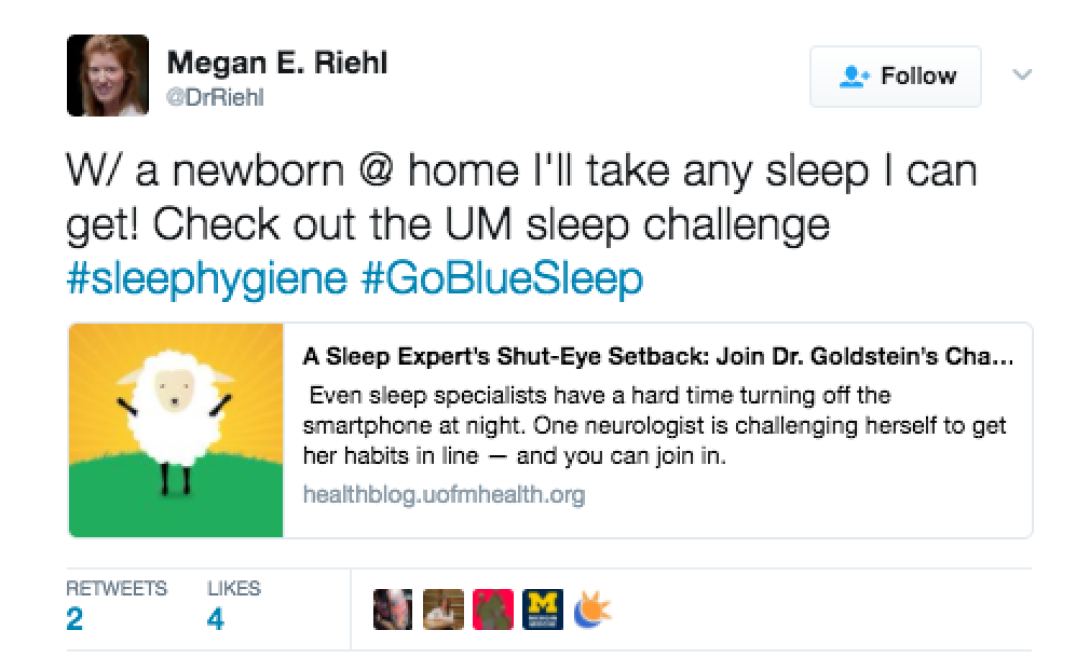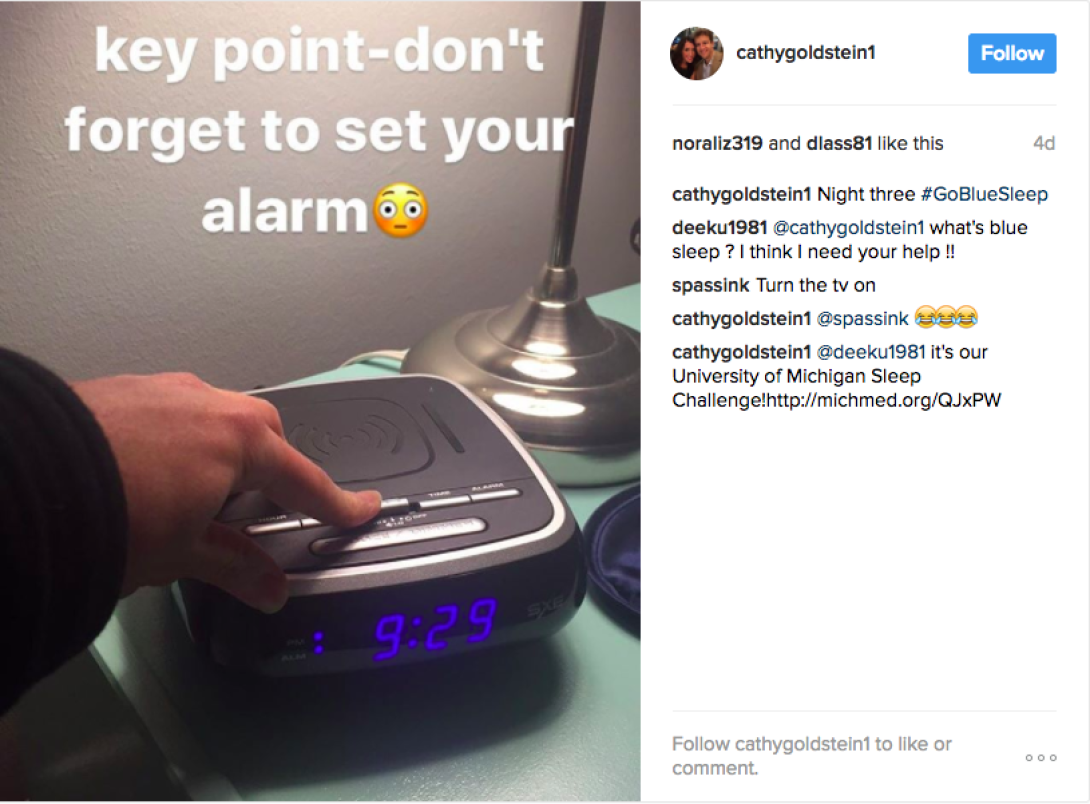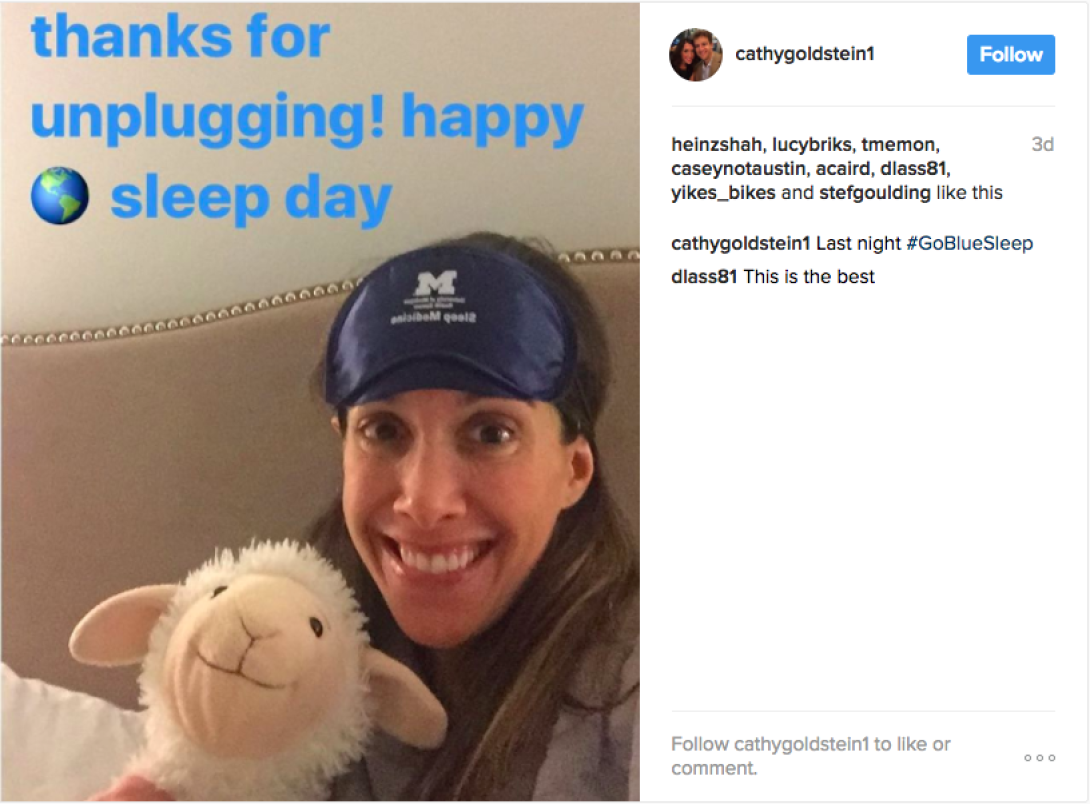A sleep expert banished electronics from her bedroom for a week. It was difficult at times, but she emerged well-rested.
2:30 PM
Author |


Neurologist Cathy Goldstein, M.D., has admitted it's not always easy to follow every sleep tip she gives her patients.
So the physician from Michigan Medicine's Sleep Disorders Center recently challenged the community to join her in banishing smartphones from the bedroom for one week.
"After a week of using an old-school alarm clock, I was forming new habits," Goldstein says. "I didn't realize how engrained it was in me to have that smartphone by my bed and go into that routine of checking my phone every night."
Exposure to bright light in the evening is known to shift your internal clock back, making it difficult to fall asleep and then wake up on time the next morning. Goldstein wanted to find out whether she'd improve her sleep quality if she better adhered to the advice she gives of avoiding bright lights, especially blue light, before bed.
The pros

Goldstein says she's more rested after charging her smartphone in the kitchen for a week, and using the same kind of alarm clock she relied on growing up.
"On average, I increased my total sleep time by 30 minutes," she says. "I was falling right asleep, often within five minutes of getting in bed."
An unexpected positive result? She didn't wake up in the middle of the night at all, even though she usually wakes up once or twice.
"The bright light or the content of what I was looking at on social media before bed could have been disrupting my sleep before," she says.
The cons

Goldstein sums up most of her negative thoughts on the #GoBlueSleep challenge with three words: cheap alarm clock.
"If I am to be a long-term alarm clock user, I must get a better one!" she says. She forgot to set it one night, and the other mornings the beeping was so loud it woke up her whole family along with her. The bright blue digital clock meant she had to cover it up at night, too.
She recommends you consider the display light and whether it has multiple volume and alarm sound settings before purchasing an alarm clock.
Unfortunately, Goldstein also says she didn't wake up any easier after a week without a smartphone next to the bed. But because she started the challenge the night after Daylight Saving Time, her body was still adjusting to that switch.
The verdict

Should everyone follow suit and permanently ban electronics from the bedroom?
Goldstein says this works for many people, but may not be necessary for everyone. Trying a weeklong challenge can show you what habits you could improve upon, such as setting a time for lights out and smartphone off each evening.
Michigan Medicine gastroenterologist Joan Chen, M.D., who participated in the challenge, adds, "The sleep challenge gave me an opportunity to address a bad habit I already knew I had. … What I learned through the challenge was that I was able to get an extra 15-20 minutes of sleep each night by not allowing a phone in the bedroom. I fell asleep quicker without my mind still wandering, thinking about an email or something else I had read on social media.
"I also did not immediately reach for the phone when I woke up in the mornings, and this allowed me to wake up more gradually instead of the immediate get-up-and-go. I hope to continue to keep the phone out after the challenge!"
As for Goldstein, she says, "I will likely go back to using my smartphone as an alarm clock, but it will no longer live on the bedside table."

Explore a variety of health care news & stories by visiting the Health Lab home page for more articles.

Department of Communication at Michigan Medicine
Want top health & research news weekly? Sign up for Health Lab’s newsletters today!





